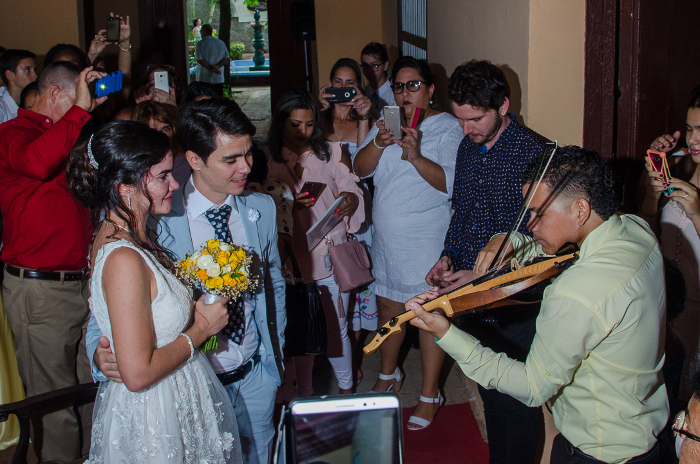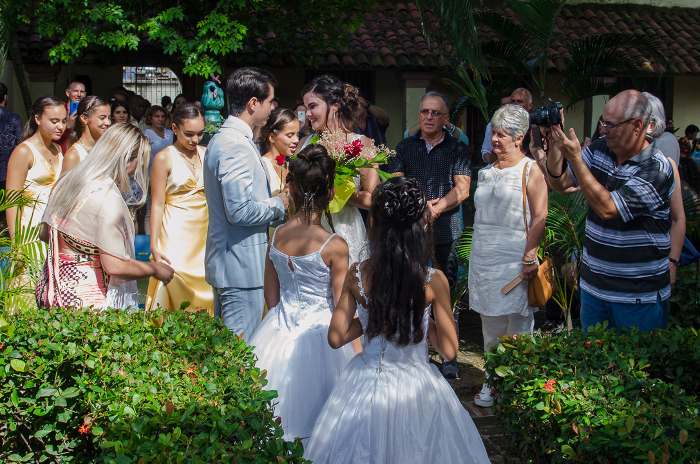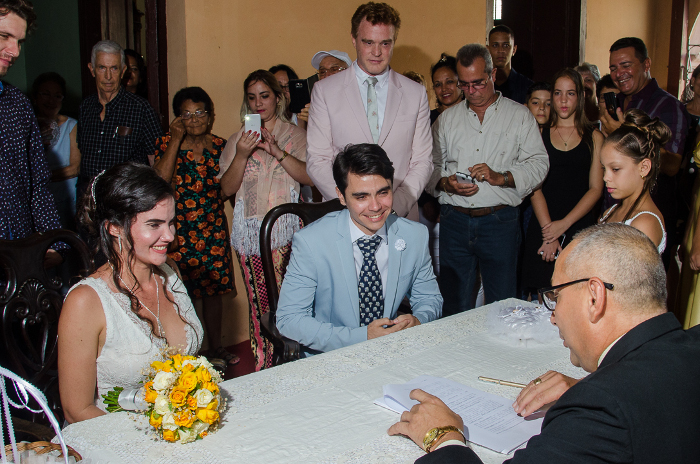CAMAGÜEY.- It is a true story but in their faces and in the intention of matching the marriage with the 151st anniversary day of Cuba's most symbolic wedding, it painted well as the plot drawn from a work of fiction.
And that idea was not far, at least for the Camagüey where it began as a movie couple, in the days before the filming of the movie that Rigoberto López managed to shoot, still eagerly awaited by the fervent followers of El Mayor.
It was not for less because he, with 29 years of age, put the effort to represent Ignacio Agramonte, an unparalleled patriot, with nobility, and she, with 28, carried the weight of assuming with dignity the great role of the extraordinary Amalia Simoni .
Perhaps the fascination came from before, but without a doubt the mutual charm became passion in those moments difficult to imagine and convince in a distant time, of great renunciations and sacrifices above self-esteem.
After a year and a half they have returned to Casa Quinta Simoni without the costumes of characters, but beautiful with simplicity and gestures of scenic fear cut off in time, because it would have been the height of two professional actors.

The ceremony involved the transit inside the house to the gallery where the notary waited to formalize the yes, then the promise with the rings, the Ave Maria sung with violin strings, the exit to the patio of the dreadful for the offering to Amalia ; and then the hug to the Agramonte of the Revolution Square.
This marriage has been an exception. At the height of the 25th edition of the Symbolic Weddings, it is the first time that two Camagüey’s have not married, but a Havana’s Boy and a Pinar del Rio’s girl.
On August 1, the precise day, they swore unlimited delivery; and it cost nothing to imagine happiness to be able to found the backwater of home that historical circumstances truncated the venerated couple of the nineteenth century.
As in matters of love there are no insurmountable rules. Who could resist the request of two good Cubans? In short, Claudia Tomás and Daniel Romero do not want or can tell the story of their lives without Camagüey. Nor Camagüey without them.

Translated by Linet Acuña Quilez

